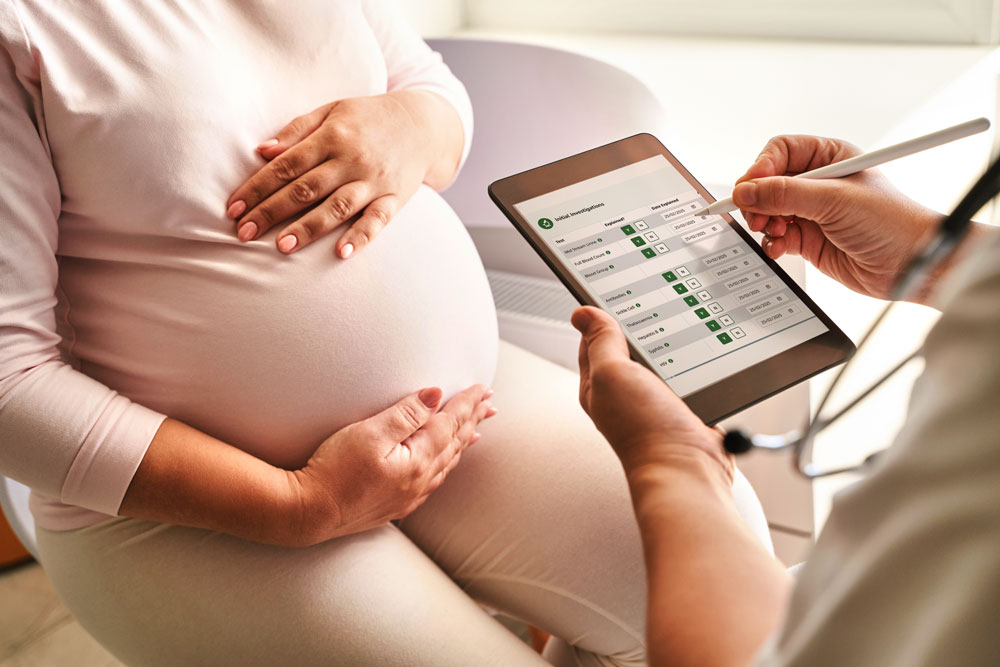Effective communication in maternity care is essential for ensuring safe, efficient, and patient-centered clinical outcomes. The integration of real-time data through advanced digital systems is transforming how healthcare professionals and mothers interact, leading to improved coordination, reduced errors, and more informed decision-making. By providing instant access to critical health information, real-time data is revolutionising the way maternity care is delivered.
In maternity services, having immediate access to up-to-date patient information is crucial. Digital systems now enable healthcare professionals to view a comprehensive picture of a mother’s medical history, current health status, and any potential risks almost instantly. This capability ensures that any changes in a mother’s condition are quickly identified and addressed, ultimately enhancing both the safety and effectiveness of the care provided.
A study by the World Health Organization (WHO) highlights that real-time digital health solutions can improve maternal health outcomes by reducing delays in diagnosis and intervention. Similarly, the National Health Service (NHS) has emphasised the importance of digital integration in improving maternity care coordination and reducing errors caused by fragmented information systems.
When patient data is centralised and easily accessible, the benefits extend beyond the clinical team. Secure platforms allow mothers to stay informed about their progress, upcoming appointments, and test results, fostering a collaborative approach to care. This transparency bridges gaps between what mothers experience and what is recorded in their medical records, ensuring that concerns are addressed promptly and decisions are made with full context.
For instance, digital maternity records have been shown to improve patient engagement, as mothers who actively monitor their health data tend to be more proactive in following care recommendations. According to a BMJ study on digital maternity records, mothers who had access to real-time updates reported higher satisfaction with their prenatal and postnatal care experiences.
One of the biggest challenges in maternity care is managing the vast amount of patient data generated throughout pregnancy. When healthcare professionals rely on fragmented records, the risk of miscommunication and errors increases. Real-time data integration addresses this issue by providing a single, coherent view of all patient details—from prenatal check-ups to delivery records.
This streamlined approach minimises duplication of tests, enhances decision-making, and reduces the risk of critical oversights. Research by the Journal of Obstetric and Gynecologic Research found that hospitals using digital maternity records saw a 30% reduction in documentation errors, highlighting the impact of real-time data on patient safety.
At the forefront of this digital revolution is MiRecord, a next-generation maternity information system designed specifically for the needs of maternity services. Unlike traditional maternity record systems, MiRecord provides:
By integrating these features, MiRecord ensures that both healthcare teams and mothers are always on the same page, reducing delays and enhancing the overall quality of care.
Real-time data integration is transforming maternity care, fostering better communication, reducing errors, and enabling more coordinated care delivery. With advanced digital tools such as MiRecord, the future of maternity care is set to be more efficient, accessible, and patient-centered. As healthcare providers and mothers continue to embrace these innovations, they will help build a foundation of trust, confidence, and improved clinical outcomes in maternity care.



MiRecord is a next-generation maternity information system designed to support safer and more effective care. With a clinically-led design and mother-centred approach to care, communication between clinicians and expectant mothers is enhanced. Its intuitive interface assists clinicians with care pathways for an improved care experience.

